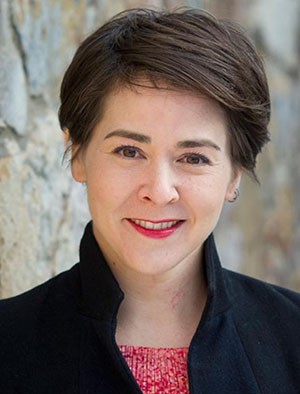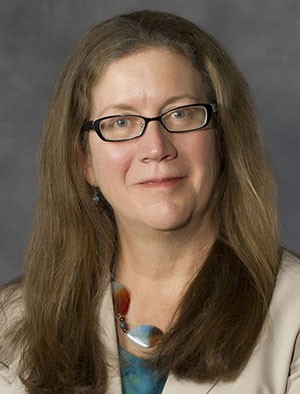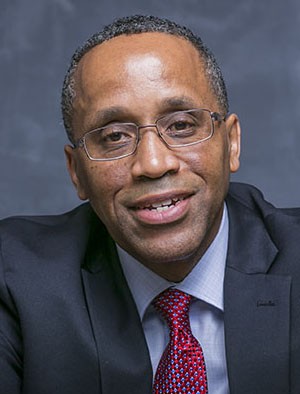Presidential Task Force on Campus Climate to be inclusive, transparent
By Joe Wilensky
In a statement released Oct. 11, Cornell President Martha E. Pollack shared the charge of the Presidential Task Force on Campus Climate and announced its co-chairs.
Following recent incidents on and near campus, Pollack issued an initial statement calling the community to action, and university leaders have since detailed new commitments to diversity and inclusion and reiterated ongoing, proactive initiatives already underway.
The charge to the new task force asks its members to address the campus experience, explore the regulation of speech and harassment, and develop guiding principles of campus response to incidents through three subcommittees. It stresses that actionable recommendations be implemented quickly, following an inclusive, comprehensive and transparent process. An intermediate report is expected around spring break, with final reports and recommendations due May 1.
“We do not expect a perfect set of ideas; the goal is to move us forward as a community, recognizing that our campus is a reflection of our society,” Pollack said in the charge, “and that we cannot entirely eliminate attitudes and expressions of intolerance and bias, but that we can and must redouble our efforts to respond to them in a way that reaffirms Cornell’s founding principles.”
Pollack has asked the Scheinman Institute on Conflict Resolution at the ILR School to engage with stakeholders – including faculty, staff and undergraduate, graduate and professional students – and recommend “an appropriate and balanced task force composition” to ensure that diverse voices and perspectives are represented throughout the task force and subcommittees.
Task force co-chairs announced
Pollack also announced three co-chairs of the task force; each will lead one of the subcommittees.
Lisa Nishii, associate professor of human resource studies and director of ILR International Programs, will lead the Campus Experience subcommittee. Committee members will look at how well Cornell is promoting an inclusive campus experience both inside and outside the classroom, how resources and systems can be made more effective, and what changes should be considered.
“Our goal is to fully engage our university community to launch real, effective efforts to ensure that Cornell offers a safe, inclusive and equitable environment for our many constituencies,” said Nishii, whose research and work focuses on diversity and inclusion in organizations.
“In these past weeks, so many of us have been thinking about Cornell’s founding principle of ‘… any person … any study’ and what that means today if we are to remain true to our mission,” Nishii said. “In light of these troubling recent events, we need to engage in conversation about how our values guide and inspire us, and how Cornell’s diversity includes all of us.”
Madelyn Wessel, university counsel and secretary of the corporation, will helm the Regulation of Speech and Harassment subcommittee. Committee members will review existing regulations addressing free speech on campus and those that prohibit discrimination and harassment to gauge their appropriateness and effectiveness; they also will examine what other enforcement and legal options are available to the university to address protected expression that may also be harmful.
“We want to do this right – and while we want to proceed expediently, we cannot make the mistake of moving too hastily. Our efforts should be thoughtful, broadly inclusive and responsive,” said Wessel, who is experienced in civil rights and constitutional law, including First Amendment and affirmative action issues. “We want to address urgent issues quickly while also putting in place an effective long-term process to institutionalize lasting changes to Cornell’s campus climate.”
David Wooten, professor of marketing in the Dyson School of Applied Economics and Management and associate dean and chief diversity officer of the Cornell SC Johnson College of Business, will head the Campus Response subcommittee. Members will look at how Cornell should respond to future incidents that infringe upon the university’s core principles and whether the right mechanisms are in place to address those incidents; and what individuals and campus groups can do to both counter unacceptable behavior and act as positive forces, while also recommending a way to measure long-term success.
“It was input from campus leaders early in this process, through the assemblies and student organizations, that inspired and informed the thinking around the scope and framework of the task force,” said Wooten, who has deep experience leading diversity and inclusion efforts in higher education. “This needs to be a transparent process, and everyone in the Cornell community can have a role.”
Each subcommittee will begin broad outreach to stakeholders: undergraduate students, graduate and professional students, faculty, and staff. Requests and input from student groups, as well as resolutions and other communications to university leadership from Cornell’s shared governance bodies, also will be shared with the task force to consider as recommendations are developed.
Pollack’s charge to the task force also asked that recommendations be developed along three timelines: those that can be accomplished immediately; ones that could be accomplished within six to 12 months; and aspirational recommendations – ones that look broadly and long term at aligning the university community with Cornell’s founding principles.
As the work of the task force gets underway, updates will be posted to the task force page on the Office of the President website.
Media Contact
Get Cornell news delivered right to your inbox.
Subscribe

